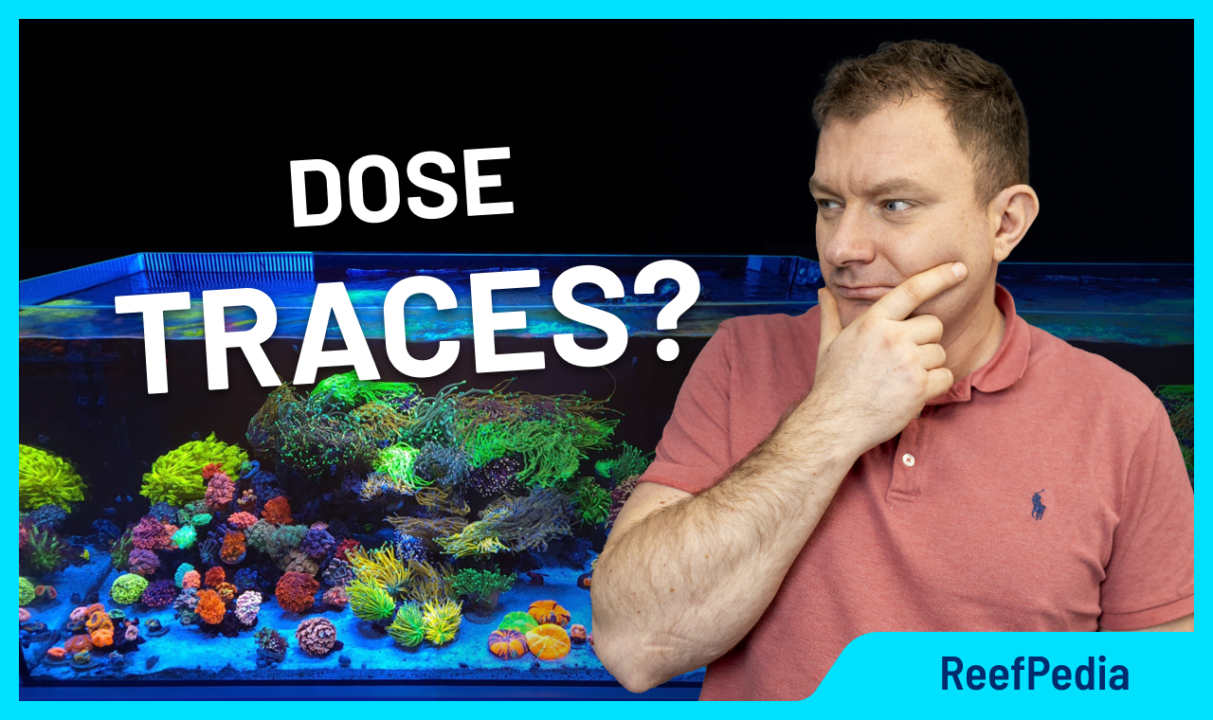Table of Contents
Dosing trace elements in a saltwater aquarium is an important part of managing the chemical environment in the tank water, especially when it comes to coral farming. In this article, I’ll discuss why dosing trace elements is important, what their biological functions are in a saltwater aquarium, and their impact on corals.
The importance of trace elements in a saltwater aquarium
Trace elements are crucial nutrients necessary for the proper development and functioning of a marine ecosystem. Although present in small amounts, their presence is critical for the health and growth of corals, as well as other marine organisms.
Biological functions of trace elements
- Impact on physiological processes.
Trace elements such as iron, manganese, zinc, and copper are essential for many enzymatic and metabolic processes in marine organisms. They are responsible for functions such as photosynthesis, cellular respiration, and other biochemical reactions. - Role in coral development.
Some trace elements are necessary for the synthesis of chlorophyll in zooxanthellae (symbiotic algae) living in corals, which is crucial for the process of photosynthesis. Additionally, trace elements are important in the biomineralization process, which enables corals to create their calcium carbonate skeletons. - Preventing diseases and stress.
Adequate levels of trace elements can help prevent diseases and stress among corals and other marine organisms by improving their overall resistance. - Coral growth and color.
Proper levels of trace elements can contribute to better coral growth and the intensity of their colors. For example, the presence of vanadium and chromium is known to affect the color of some corals. - Resistance to environmental conditions.
Trace elements can enhance corals’ resistance to changes in environmental conditions, such as temperatures, light levels, and various types of stress.
Important trace elements and their functions in marine animals:
- Iron (Fe)
- support for photosynthesis;
- role in nitrogen metabolism;
- strengthening coral immunity;
- impact on coral color and growth;
- preventing anemia in fish and other marine animals;
- regulation of biological processes.
- Manganese (Mn)
- support for photosynthetic processes;
- role in metabolic processes;
- assistance in detoxification;
- impact on the development of coral skeletons.
- Zinc (Zn)
- functions of enzymes;
- strengthening coral immunity and health;
- development and tissue regeneration;
- impact on growth and coloration;
- importance for other marine organisms;
- balance in the aquarium;
- role in photosynthesis.
- Copper (Cu)
- support for symbiotic algae;
- antioxidant functions;
- role in detoxification processes.
- Iodine (I)
- stimulates algae growth;
- utilized by corals in metabolic processes;
- essential building block for living organisms: bacteria, algae, corals, crustaceans, and fish;
- prevents diseases and infections.
- Selenium (Se)
- component of some antioxidant enzymes.
- Molybdenum (Mo):
- essential in certain enzymatic processes.
- Vanadium (V)
- it affects the color of certain corals and participates in various biochemical processes.
- Chromium (Cr)
- it affects the metabolism of sugars and fats.
- Nickel (Ni)
- it participates in certain enzymatic reactions.
- Cobalt (Co)
- an important component of vitamin B12.
- Lithium (Li)
- although its role is less known, it may impact some biological processes in aquariums.
Dosing trace elements in an aquarium
- Choosing the right supplement.
Various supplements containing trace elements are available on the market, specifically designed for saltwater aquariums. It’s important to select high-quality products that deliver trace elements in the correct proportions without impurities. - Monitoring levels.
Regularly testing the water in the aquarium allows for monitoring trace element levels and adjusting their dosing accordingly. Excess of some trace elements can be harmful to the aquarium. The recommended test is the ICP OES method. - Adjusting to individual aquarium needs.
Each aquarium is unique, and the requirements for trace elements may vary depending on the species of corals and other inhabitants, as well as other factors such as lighting, water flow, and biological load.
Summary
Dosing trace elements in a saltwater aquarium is an important aspect of maintaining a healthy ecosystem. As described in this article, trace elements affect many different processes in marine animals.
About the author

Marek Protasewicz
Reefkeeping has been my passion for over 10 years now. I love learning. The hobby has taught me many valuable lessons, patience being the best example. Combining work and passion is my path. I run Crazy Coral, a marine aquarium shop, for a number of years. Building this business from the scratch I learnt from my own mistakes at a heavy cost.
Later I managed a project aimed at development of methods for quick growth of Corals in non-natural conditions. The project was carried out by Get Sales, Poland. Presently, I am responsible for distribution strategy at Reef Factory, of which I am a co-founder. The company produces smart devices for marine aquaristics. The last projects I have been involved in are Social Reef and ReefPedia.



